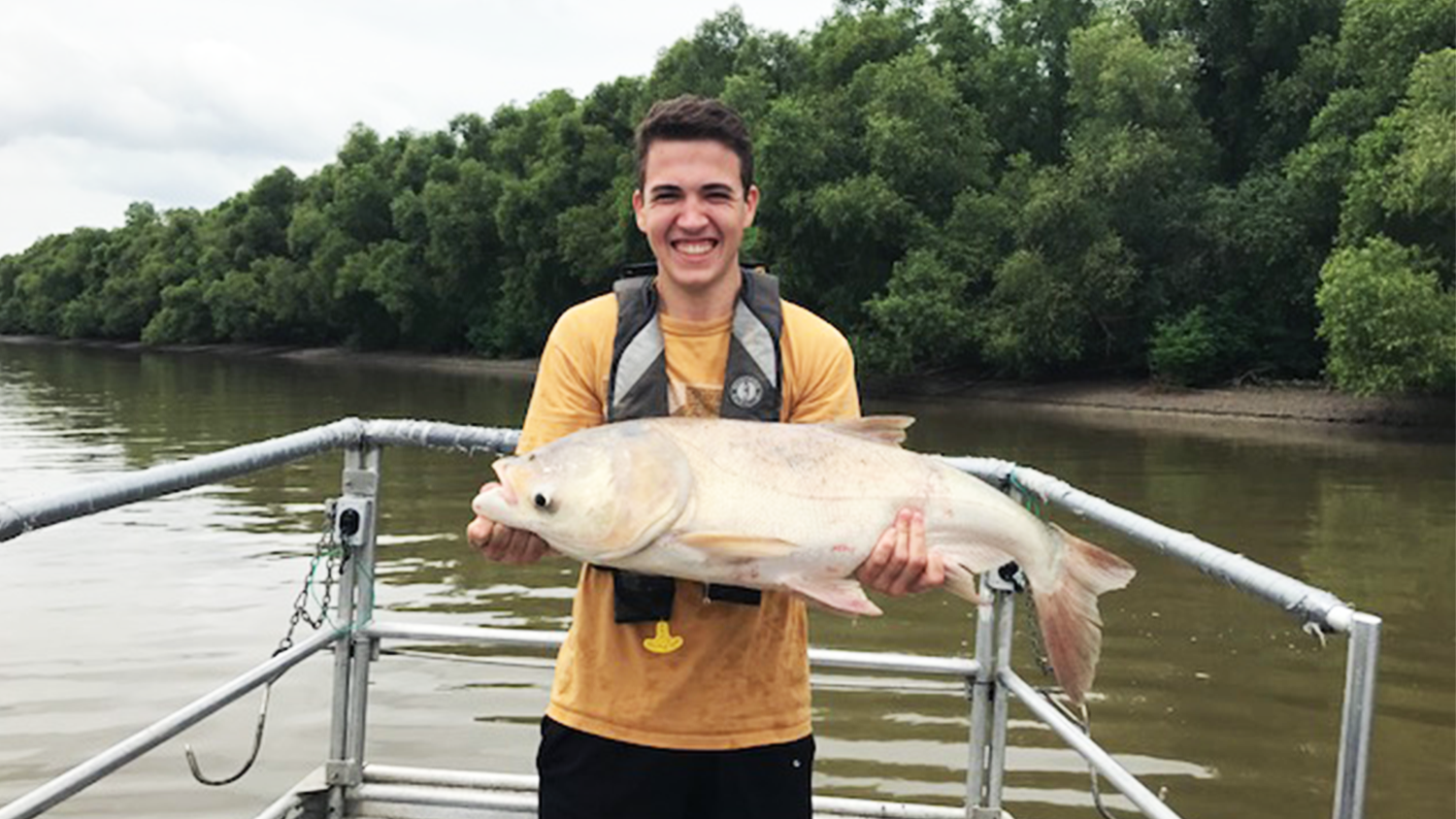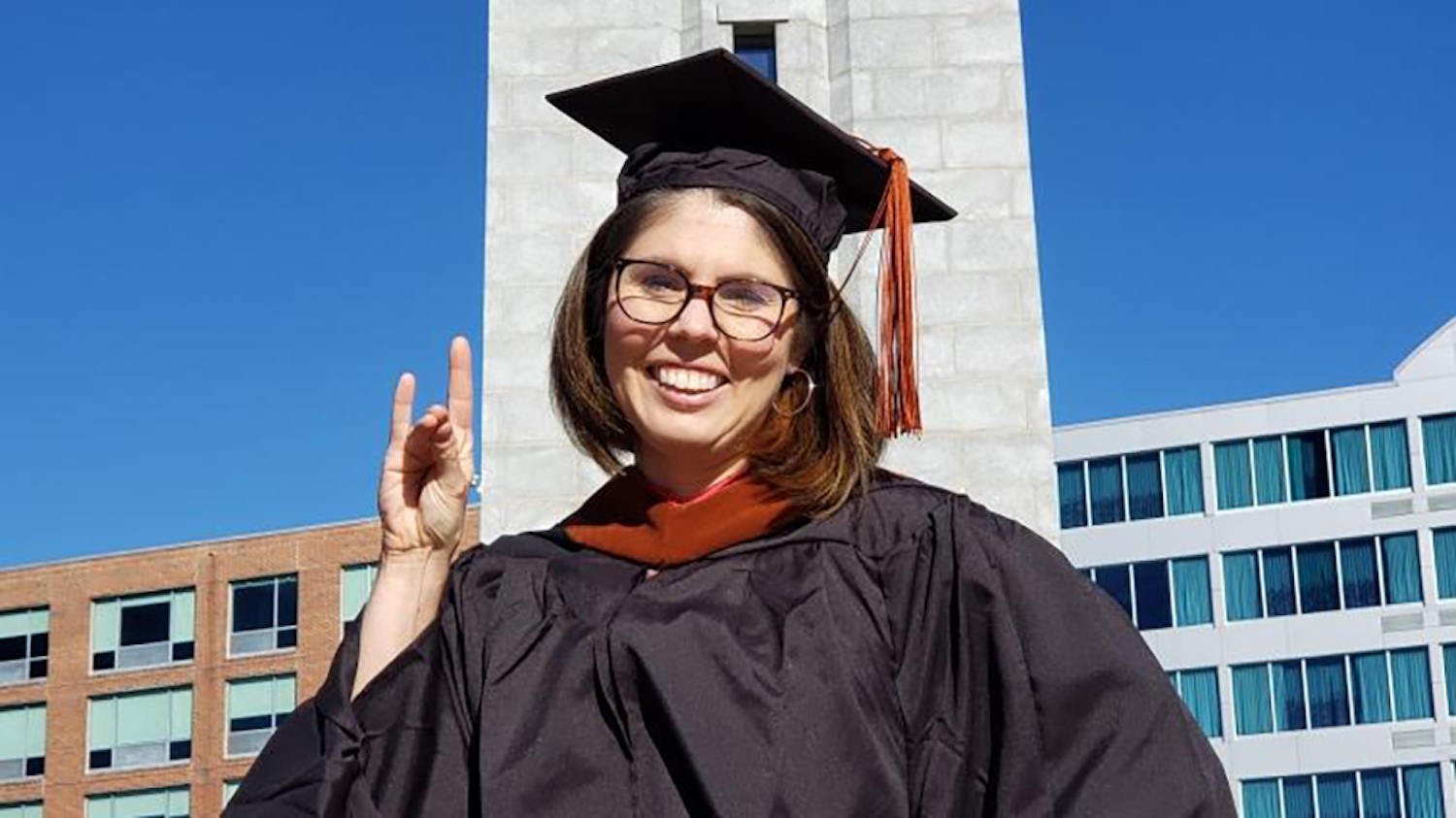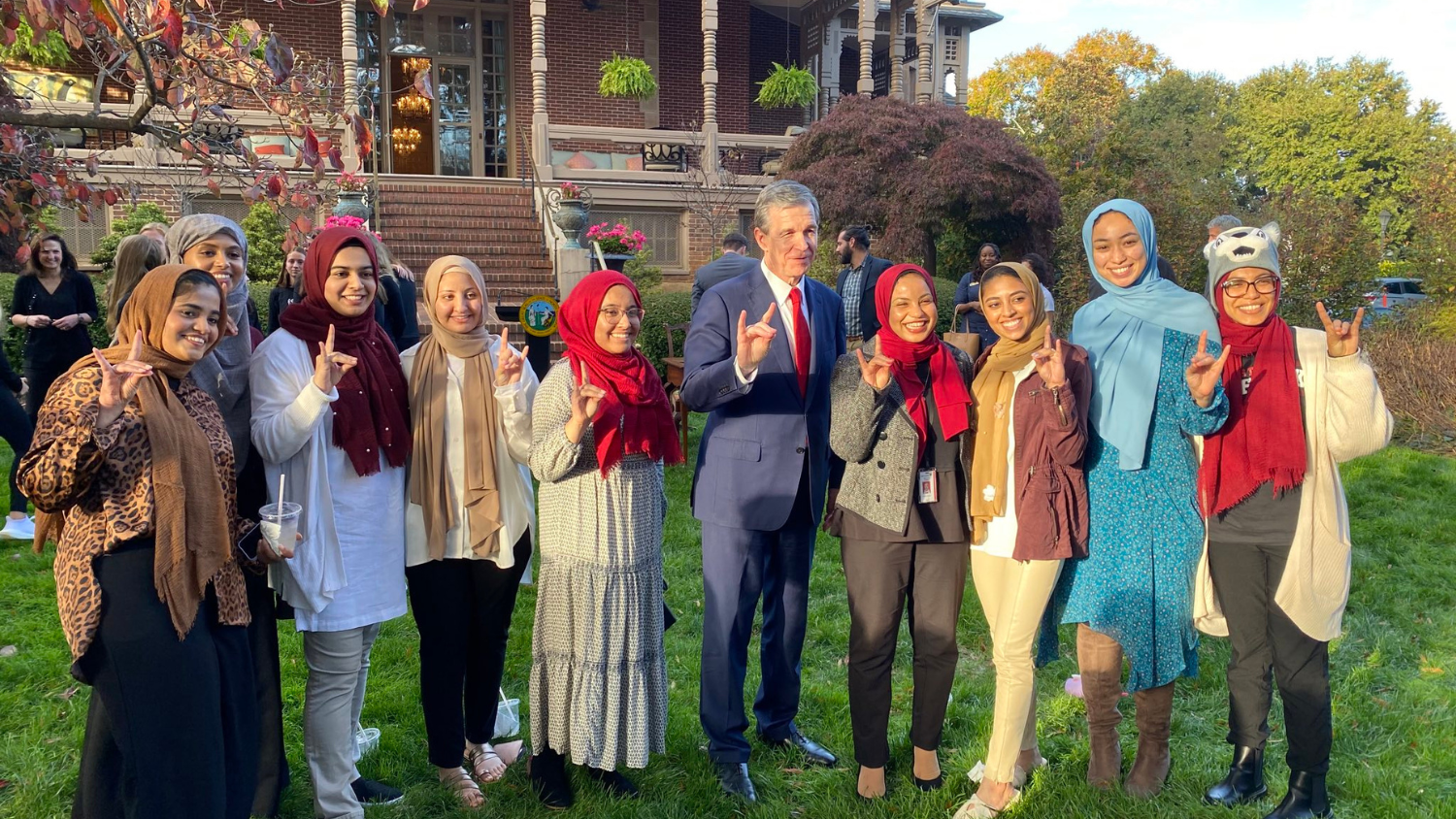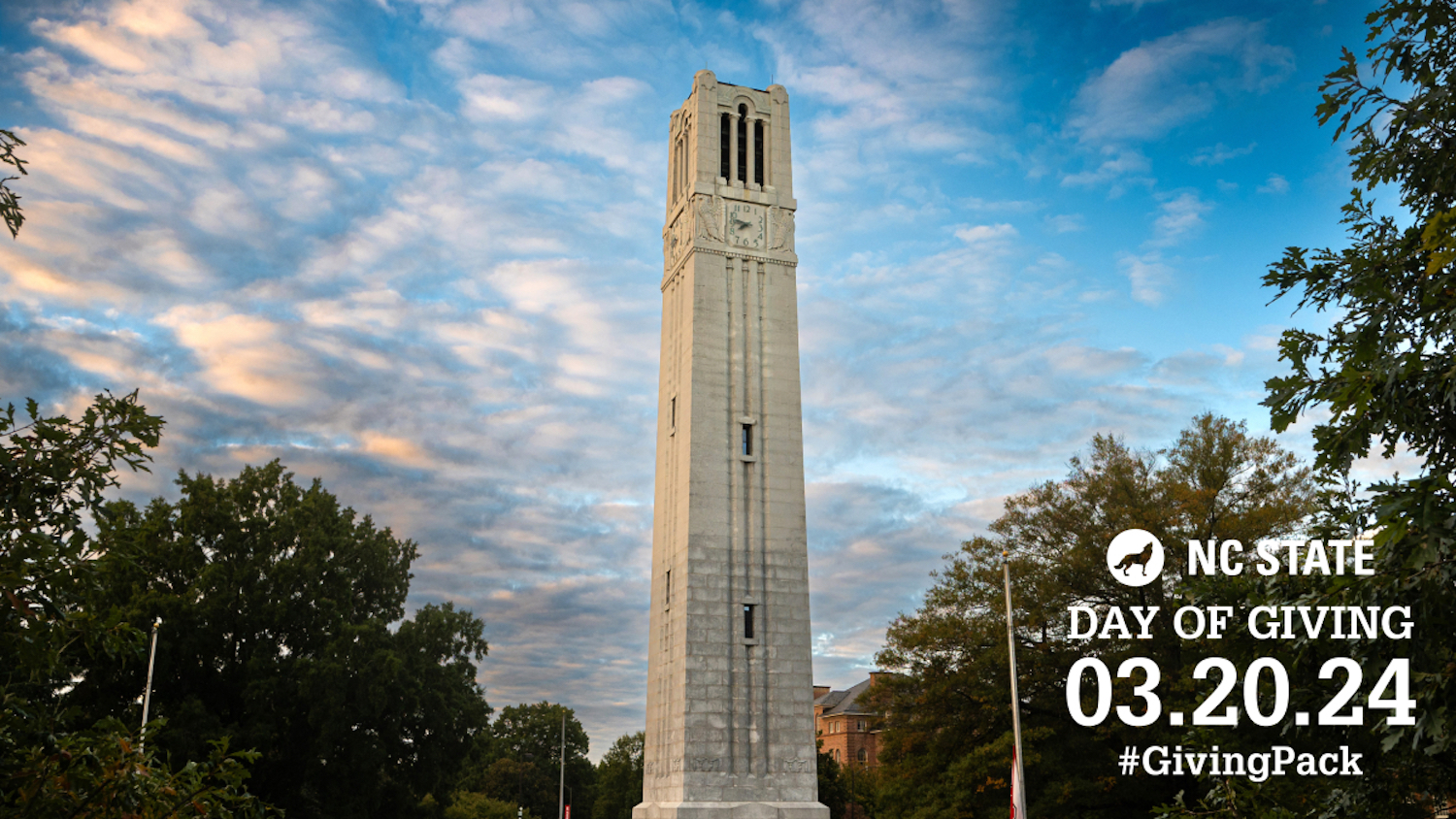Student Spotlight: Jacob Veilleux

Fisheries, Wildlife and Conservation Biology major Jacob Veilleux interned with the with the Illinois River Biological Station in Havana, Illinois, where he focused his time studying Smallmouth Buffalo fish. A University Scholar, Veilleux is very engaged in career-focused extracurricular activities like the NC State Leopold Wildlife Club and the Pre-Veterinary Club. When he isn’t prepping for his future career, Veilleux is often playing intramural sports. His experiences are supported by the Ron and Dale Terry Student Assistance and Enrichment Fund and the Hope Valley Forest Scholarship.
Tell us about your hands-on experience.
I worked with the Upper Mississippi River Restoration Program monitoring element data specific to the La Grange Reach of the Illinois River. My job was to conduct analyses on Smallmouth Buffalo fish catches using several different metrics, including catch per unit effort, relative weight and length. This was an important project because not much is known about the status of the fish’s populations and they are the largest commercial fish in Illinois. At the end of my internship, I presented my findings and a poster at the Annual National Great Rivers Research and Education Center Intern Program Symposium, which hosts biologists and scientists from around the country.
During my internship, I also gained valuable hands-on experience at the field station. Approximately half of my time was spent in the field, assisting in fisheries and water quality sampling efforts, which included setting and retrieving hoop, fyke and minifyke nets, as well as electrofishing.
How did this experience impact you?
My internship impacted me in a multitude of ways. I learned many different research techniques on the computer, in the lab and in the field, that I am sure I will use again in the future. The fact that the National Great Rivers and Research Education Center sponsored a symposium for all the interns at the end of our internship was incredibly impactful on my academic and professional development. I gained some great experience presenting and explaining my research findings to a large group of peers and professionals. Additionally, I have no doubt my experience will enhance my chances of admission into veterinary school. I hope to someday work in the field of population health and disease, and after gaining experience in the field, believe there is extensive overlap between fisheries management and conservation and veterinary medicine.
What did you enjoy most about your experience?
A unique aspect of my internship was that I could get involved in many different projects occurring at the Illinois River Biological Station. This included my research project focused on the status of Smallmouth Buffalo fish populations, zooplankton and water quality studies, and fishery community sampling. Out of these experiences, I most enjoyed my time in the field doing fisheries work. I would head out in the boat with one of the lead biologist and a technician and go electrofishing or set and retrieve nets. After bringing the fish aboard, we would identify and measure them, then release them back into the river.
What did you find most challenging?
Although my advisers at the Illinois River Biological Station were incredibly helpful and involved me in many different studies and projects, much of the work I did was independent. My research required me to data mine 23 years of fisheries sampling from an Excel file. I had to filter and organize the data, then run various analyses on it to look for trends and significant values. This was hard work and I had to do a lot of double checking of my formulas and pivot tables. However, the end result was very rewarding.
What did you learn about yourself?
My internship concluded with a symposium where I gave a Power Point presentation of my research to a group of approximately 60 interns, scientists and other professionals. Though I have some prior experience with public speaking from classes and internships, this was my first time giving a scientific presentation and I was unsure about how it would go. After some practice and a “dry-run” presentation in front of the field station, I felt ready. When the time came, I felt very comfortable on the stage and was told by my advisers I did a great job. My internship was crucial not only in providing me such a unique experience to showcase my research, but also helped me improve my public speaking skills.
Would you recommend this experience to other students?
Absolutely, this internship provides students with the opportunity to not only gain field and lab experience, but conduct their own research and present the findings to an audience of peers and scientists. In addition, I worked with some great people, especially my project advisers, and gained insight into a potential future career.
Any advice to incoming students?
All programs within the College of Natural Resources provide academic and research opportunities that other college departments do not necessarily have. My degree program, Fisheries, Wildlife, and Conservation Biology, emphasizes the importance of gaining experience outside of the classroom, and I am very happy they do so. I encourage incoming students to apply to any internship, research experience and scholarship they are interested in or eligible for. Not only does it help build a good resume, but these out of class experiences can help you decide what career you want to focus on and can also be a great chance to network.
- Categories:


